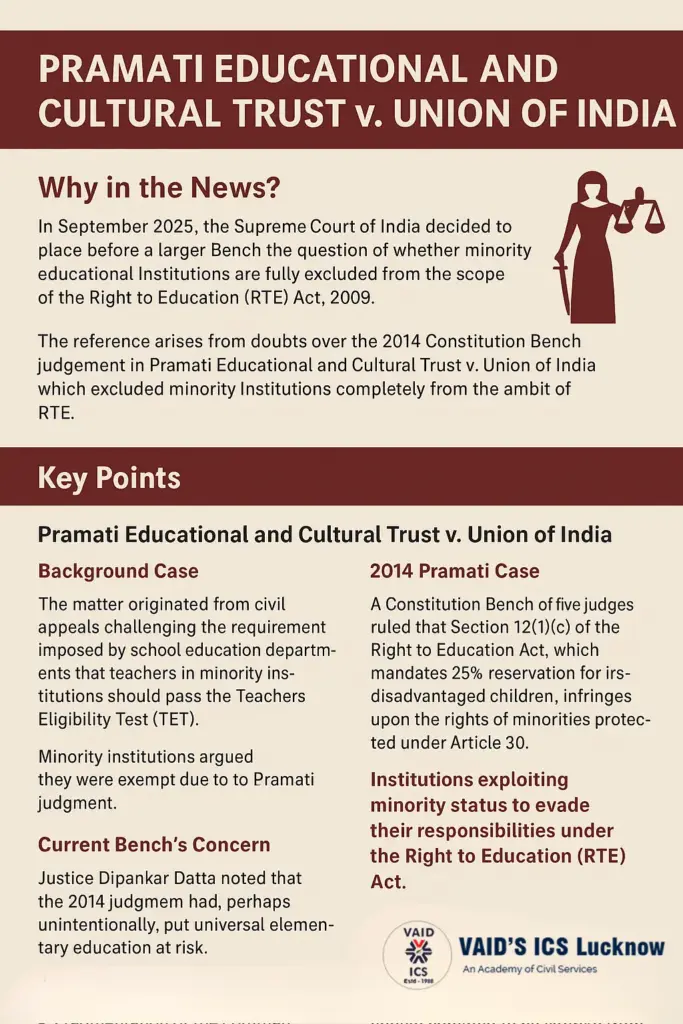September 2, 2025
Pramati Educational and Cultural Trust v. Union of India
Why in the News?
In September 2025, the Supreme Court of India decided to place before a larger Bench the question of whether minority educational institutions are fully excluded from the scope of the Right to Education (RTE) Act, 2009.
- The reference arises from doubts over the 2014 Constitution Bench judgment in Pramati Educational and Cultural Trust v. Union of India, which excluded minority institutions completely from the ambit of RTE.
Key Points: Pramati Educational and Cultural Trust v. Union of India
Background Case:
- The matter originated from civil appeals challenging the requirement imposed by school education departments that teachers in minority institutions should pass the Teachers Eligibility Test (TET).
- Minority institutions argued they were exempt due to the Pramati judgment.
2014 Pramati Case:
- A Constitution Bench of five judges ruled that Section 12(1)(c) of the Right to Education Act, which mandates 25% reservation for disadvantaged children, infringes upon the rights of minorities protected under Article 30.
- It concluded minority institutions were completely outside RTE’s purview.
Current Bench’s Concern:
- Justice Dipankar Datta noted that the 2014 judgment had, perhaps unintentionally, put universal elementary education at risk.
- Exemption has led to:
- Fragmentation of the common schooling system.
- Weakening inclusivity and social integration under Article 21A (Right to Education).
- Institutions exploiting minority status to evade their responsibilities under the Right to Education (RTE) Act.
Judicial Direction:
- The issue has been placed before a larger Constitution Bench to re-examine if minority institutions should continue to be exempt from the provisions of the RTE Act.
Types of Constitutional Benches (under Article 145(3):
The Supreme Court sets up a Constitution Bench when there is:
- Interpretation of the Constitution, or
- A substantial question of law as to the Constitution’s validity or scope.
Categories of Constitution Benches:
- Five-Judge Bench – Minimum requirement under Article 145(3) for constitutional questions.
- Seven-Judge Bench – Convened when important precedents need reconsideration.
- Nine-Judge Bench – Reserved for landmark constitutional matters (e.g., Kesavananda Bharati 1973 – Basic Structure; Puttaswamy 2017 – Right to Privacy).
- Larger Benches (11, 13 Judges) – Extremely rare, used in cases of extraordinary constitutional significance.
Daily Gist of The Hindu/Indian Express: 6 Oct 2025
October 6, 2025
Daily Gist of Article /The Hindu /Indian Express: 24 Sep 2025
September 24, 2025
Gist of Daily News Papers Articles/The Hindu /Indian Express-23 Sep 2025
September 23, 2025
Daily Article Gist/The Hindu/22 Sep 2025
September 22, 2025

